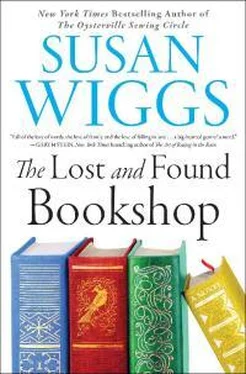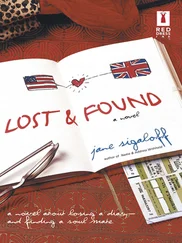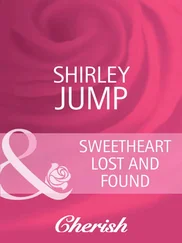Most of the customers who stopped in were just browsing or needed the bathroom. This reminded Natalie that the building itself added its own set of worries. A pipe in the wall was making a funny sound when the hot water ran. She worried about her grandfather, too. Yesterday Grandy had dropped a glass bottle in the shower and cut himself.
She used up the last of her mother’s sleeping pills and still tossed and turned most of the night.
* * *
Natalie was jolted awake by the wind rattling a windowpane that should have been replaced decades ago. She was filled with a what-have-I-done sense of dread. How could she even think there was a way to rescue this situation? She had lost her mother and Rick. She’d thrown away her job and was now faced with running a business that was deeply in debt in a falling-down building, with her elderly grandfather slowly losing himself. Trying to keep the bookstore going was a horrible mistake.
She yanked on her clothes, shoved a few more into a bag, and rushed downstairs. Maybe if she went back to Pinnacle Fine Wines and recanted her quitting, they would take her back. It was an awful job, but at least it wouldn’t send her and her grandfather off a cliff.
She went outside to throw her bag in the car. Standing at the curb, she looked left and right, then froze. No car. Where the hell was her car? In its place was a panel van covered in morning dew.
She took out her phone to report the car stolen. Her screen flashed the daily affirmation from the app she’d installed: Happiness isn’t a moment in the future. Find something to be happy about right here, right now.
“Bite me,” she muttered to the universe. Who would steal a nine-year-old compact sedan? Then she spotted a sign spelling out the on-street parking rules—no parking m-w-f on east side except . . . The rules were so complicated and restrictive that her eyes glazed over. Obviously she’d violated one of the intricate restrictions. The car had been towed, then. Wonderful.
She tipped back her head, addressing the universe again. “All I need is a glimmer,” she said. “Just one goddamned glimmer of hope. Is that too much to ask?”
An oversize work truck trolled past, its engine growling ominously. It wasn’t a tow truck, though. Just some workman looking for a parking spot. Good luck with that, buddy , thought Natalie. A magnetic sign on the door depicted Michelangelo’s David wearing a strategically placed tool belt and hammer for hire with a phone number.
Really? she thought, batting away a cloud of diesel exhaust. That was not the glimmer she was looking for.
A Radiohead song blared from an open window. She covered her ears to block out the noise as she called the posted number of the towing service. After an annoying sequence of automated responses, she figured out that there was actually no simple way to pay the fine and reclaim the car.
Good job, Natalie , she thought. Now what the hell are you going to do? While she stood there pondering the feeling of utter defeat, a woman came out of the gallery a few doors down, climbed into the panel van, and pulled away from the curb.
What next? Natalie wondered. What new disaster awaited her?
8
Peach Gallagher was amazed when a parking spot opened up right in front of the job site—a bookstore in a funky old building. That almost never happened. Parking was a bitch in this section of town, one of San Francisco’s historic districts. That was code for “no place to park and unaffordable real estate.” But this morning, luck was on his side, and he glided the truck smoothly into the nice big spot.
He could use a little luck this morning. It was changeover day for Dorothy, when his kid had to go to her mom and Regis for the rest of the week, leaving a giant gaping hole of loneliness in Peach’s life.
On the sidewalk near the bookstore, there was a homeless woman with wrinkled clothes and messy hair and an overstuffed bag. He made sure he had a couple of bucks in his pocket to give her if she panhandled him. He wasn’t exactly made of money, but he could always spare a little something.
Adjusting the bill of his baseball cap, he jumped out of the truck, went around to the back, and lowered the tailgate. He heard the woman talking, maybe babbling to herself. Then he realized she was talking on the phone, pacing the sidewalk. So maybe not homeless.
She hung up, jammed the phone into her pocket, and finally seemed to notice him.
“Morning,” he said, flashing a grin.
“Morning,” she said, and brushed a hand through her hair. Dark and curly, tumbling over a frown that appeared to be more angry than troubled. “This is a tow-away zone, by the way,” she said.
He strapped on a tool belt and clicked the buckle. Then he added a nail bag to the belt. “Yeah?”
“I just got towed.”
That accounted for the frown and the pacing. “Bummer,” he said, then took out his battered notepad, double-checking the numbers over the shop door.
“Looking for something?” she asked, her voice tinged with suspicion.
“I’m looking for Ms. Harper.”
The frown deepened. “What? Ms. Harper?”
He glanced at the address on his notepad again, then back at the woman. “Pretty sure this is the right place. Do you know her?”
“Yes,” she said. Then she shook her head. “I mean, no.”
He paused, eyeing her up and down. She was small and cute in spite of the rumpled clothes and distracted air. Amazing eyes, nice lips that needed to smile more, the kind of interesting face that might inspire a song. “Which is it?”
“I’m Natalie Harper. But I think you might be looking for my mother.”
“Gotcha. So is she—”
“Dead,” the woman named Natalie blurted out. “My mother’s dead.”
Whoa. Dead? He adjusted his cap and absorbed this information, hoping he’d heard wrong. “Oh, uh, oh, man.” Shit, what the hell did you say to that? “What . . . I mean . . .”
As he floundered for words, the woman leaned back against the black enamel facade of the building, put her hands to her face, and, to his mortification, began to cry.
What the hell? Jesus.
Peach set down his toolbox and strode over to her. “Damn, I’m sorry. I spoke with her about a job and— Damn. What happened?”
She used the tail of her shirt to wipe her face. He had a swift, inappropriate thought about her toned, bare midriff.
“It was an accident. A plane crash.”
“Holy shit. I mean, I’m sorry . . . Natalie, right?”
She nodded. “That’s me.”
“I’m Peach,” he said. “Peach Gallagher.”
She blotted her eyes with her sleeve. “Peach.” She gave herself a little shake. “My mom wrote that on her calendar, underlined. I thought she was starting a shopping list or something. And you’re here to . . .” Her voice trailed off as her gaze wandered to the tattoo on his upper arm—one of several bad decisions of his youth.
“Are you all right?” he asked, feeling way out of his depth. He was a contractor, not a grief counselor. “I mean . . . Sorry. Dumb question.”
She leaned against the building, hugging her arms around her middle as if she were cold. Peach felt an urge to touch her, pat her shoulder or something, but he knew better. “I’m really sorry.” The tragedy put his crappy morning into perspective. “I just don’t know what else to say to you.”
She conceded this with a nod. “No one does. I get it. I wouldn’t know, either.” Then she looked up at him, enormous brown eyes beneath that tumble of curls, her lashes damp spikes. “So you had an appointment to . . .”
He flipped the page in his notes. “She had a list. There’s a doorway that needs widening, a light switch that needs to be moved, and a wheelchair ramp installation. Grab bars in a bathroom? Does any of this sound familiar?”
Читать дальше












